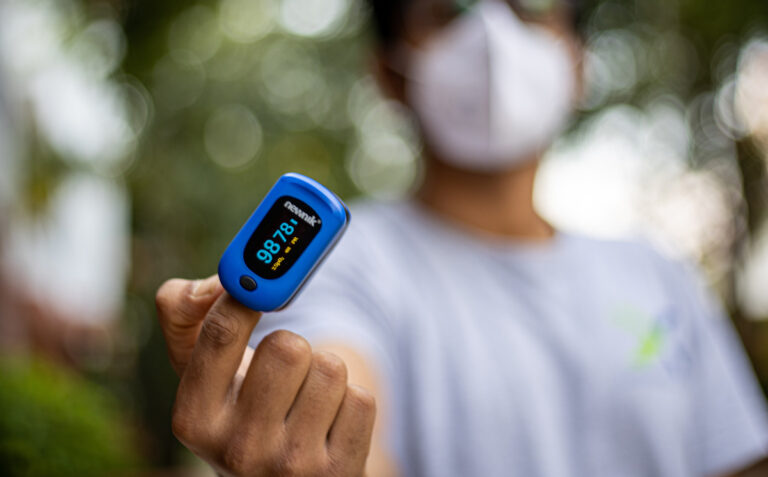Racism in healthcare: review finds pulse oxygen monitors may be less accurate on darker skin

Throughout the COVID-19 pandemic, the sales of at-home pulse oximeters have skyrocketed with The New York Times calling the device the “personal tech gadget of 2020.” Although their use has been and is vital, both in healthcare settings and otherwise, there seems to be a recurring issue—they might not work well on darker skin. So how does it work?
A pulse oxygen monitor is a small, non-invasive device that is most commonly attached to your finger. It works by measuring oxygen levels through “small beams of light [that] pass through the blood in the finger.” Along with informing you about your heart rate, the levels of oxygen are then calculated by measuring any changes of “light absorption in oxygenated or deoxygenated blood.”
The idea that pulse oxygen monitors may be less effective on those with darker skin has been a topic of discussion throughout the pandemic around the world—with numerous studies conducted in the US confirming this theory. Now medical experts in the UK are issuing the same warning.
A rapid review of the devices’ effectiveness on black, Asian and minority ethnic peoples was carried out by the NHS Race and Health Observatory and published in April 2021. The review noted that the devices were developed and studied on white and light-skinned individuals and that the general symptoms associated with low oxygen levels—paleness or going ‘blue’—may not be applicable to those with darker skin.
The UK review also cited how “analysis from a recent 2020 Michigan University study found pulse oximeter readings of blood oxygen levels were three times more likely to be inaccurate among African-American patients.” Director of the NHS Race and Health Observatory, Dr Habib Naqvi told the BBC, “It’s an aspect of the sort of systemic biases and systemic racism that occur in the NHS and the care that we provide in the NHS every day.”
The dangerous consequence of this device’s limitations is that it could possibly overestimate oxygen levels in people with darker skin, as reported by the Medicines and Healthcare products Regulatory Agency (MHRA) and NHS England.
This is another blow for patients from minority backgrounds, who have already discovered throughout the pandemic that people of colour in the UK and around the world—due a number of factors—have been disproportionately affected by the virus. It is this fact that has led to calls for the device’s limitations to be advertised—with some experts actually citing it as a possible contributing factor to the high mortality rates in black and ethnic minority patients.
The BBC has reported that NHS England is now updating their guidance on the use of this device—advising patients of colour to continue using pulse oxygen monitors but should be used alongside a healthcare professional’s advice. The NHS website also reads that people of colour should still use the device to measure their levels, “By looking at changes in readings rather than just one reading, it means that even if an oximeter is not completely accurate, it is still possible to see if oxygen levels are going down.”
They cited the limitations of the device on darker skin and pledged that “NHS England and NHS Improvement are keeping this situation under review and the National Institute for Health Research has been asked to support further research so that we can understand more about how this may apply to people with darker skin who have COVID-19 and are using pulse oximetry.”
This is yet another reminder of the systemic racism that is deeply embedded into the institutions of our society and a call for more racially-inclusive research in the healthcare equipment industry.




